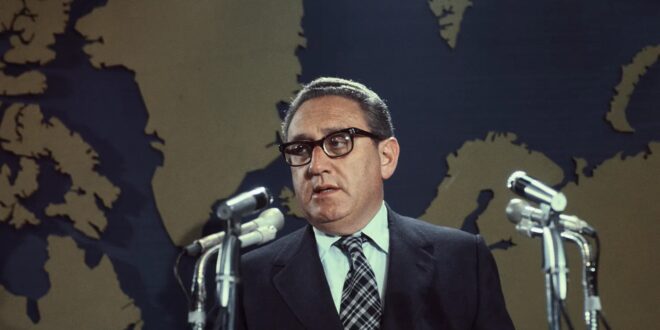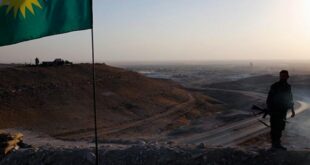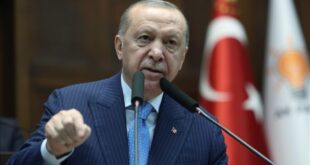To those who steep themselves in history, and others who follow international affairs with obsessive focus, the bill of particulars often cited this week in critical appraisals of Henry Kissinger’s record as an unusually powerful figure in the history of U.S. foreign policy may already seem blandly familiar.
The list of countries where at Kissinger’s behest the United States intervened in antidemocratic ways or committed what many international legal scholars and human rights experts say were war crimes is so long as to have the quality of an alphabet soup. For those who follow such matters with less attention or care, though, Kissinger’s career has lent itself to a kind of lazy, prismatic assessment. Even some well-informed people fall prey to or have enthusiastically lent their voices to this kind of logic.
You say that Kissinger directed the Washington foreign-policy machine to prevent the inauguration of Salvador Allende, a democratically elected socialist leader in Chile? And when that failed, directly encouraged his overthrow, and then had U.S. diplomats downplay the murderous political terror employed by the military in that South American country to stay in power? Well, on the other hand, according to this parlor-game manner of assessment, the Cold War was no age of innocence, and sometimes ugly things needed to be done in order to keep things moving in the right direction. Otherwise, “communism” might have spread to nearby countries such as Argentina and Uruguay.
You say that the United States helped overthrow a government in Cambodia and carried out secret and illegal intense bombing campaigns in that country and in Laos that indiscriminately killed many thousands of civilians and devastated their economies? Well, Washington was desperate to bring about an end to the Vietnam War—and weren’t there good reasons for that, such as avoiding the deaths of U.S. service members and bringing that conflict to a politically acceptable end?
You say that Washington lent encouragement to military-ruled Pakistan in a genocidal war to prevent the independence of the nation that became Bangladesh? Well, Pakistan’s sworn foe, India, was disturbingly close to the Soviet Union back then. U.S. President Richard Nixon told Kissinger then that India deserved “a mass famine.”+
And besides, Washington was in the midst of delicate arrangements to restore ties with Beijing to balance against Moscow. Wasn’t such a momentous shift in Cold War dynamics in favor of the United States worth it? In this spirit, Kissinger replied in seeming contentment to his boss in the White House that the ruler of Pakistan at the time, Gen. Agha Muhammad Yahya Khan, “hasn’t had such fun since the last Hindu massacre.” Here he was alluding to the campaign of killing and raping in Bangladesh that a group of dissenting U.S. diplomatic officials at the Consulate General in Dhaka at the time likened to “genocide.”
You say that Kissinger directed U.S. officials to provide cover for Chile’s assassination in Washington of one of its own former ambassadors? Well, once again, the world was a tough place back then, and the other side surely did plenty of unconscionable things, too. But why keep bringing all of this unpleasantness up? Didn’t we—the Americans, the good guys—win in the end?
As readers should be able to see, this kind of treatment doesn’t get us very far, because it casts little moral light on the stakes involved—both then and now—in how might is used by the powerful in the world. That is because the only values this worldview takes into consideration are power and prerogative. To put that in an ancient and simpler way, all it says is that might makes right.
The more one thinks about the Kissinger alphabet soup, though, the more a pattern emerges. The countries where Kissinger left the most damaging legacies are concentrated in what is often fancied as the global south. As geography goes, this is a nonsensical grab bag that is fiendishly hard to define. In geopolitics, though, it is as easy as pie. What we speak of as the global south simply means what historians, diplomats, and international relations experts have long referred to as the global “periphery.”
“Peripheral to what?” you would be right to ask. The answer is anything that is not part of what these same disciplines speak of as the “core.” The core means whatever they take to be of overriding import in the world at any given time. In actuality, these things don’t shift much from moment to moment. The core has usually been taken to mean whatever one defines as the West and whomever the West considers its peer rivals and adversaries to be at any given time.
Because core means important, peripheral means unworthy of equal—or usually even serious—consideration. In geopolitics of the sort long practiced by Kissinger, a colloquial term for the periphery is “sideshow,” and this is precisely how he treated the lives and rights of the people in what was for him the non-core world.
In December 1970, eager to bring North Vietnam to its knees, or at least to the negotiating table as a supplicant, Nixon told Kissinger to oversee a sharp escalation in the already-deadly U.S. aerial bombing campaign in Cambodia that would ultimately kill at least 100,000 civilians, saying “crack the hell out of them.” Kissinger, who participated in detailed targeting exercises, then relayed this order to his military aide: “It’s an order, it’s to be done. Anything that flies, on anything that moves. You got that?”
As British journalist William Shawcross documented, Kissinger viewed the U.S. war campaign in Cambodia, where he presided over a tripling of the number of bombs dropped on that country, as a sideshow. According to the logic of core versus periphery dear to Kissinger, though, he was being too modest. Cambodia was actually the sideshow of a sideshow, with the latter being Vietnam. The United States fought for so many years in Vietnam not because of any inherent interest in Vietnam or the Vietnamese, who clearly inhabited the global periphery, but because of how it believed Vietnam figured in core rivalries first with China and then the Soviet Union. This is how more than 3 million lives, overwhelmingly Vietnamese ones, came to their worldly end.
There is a degree of dark inevitability involved here that is seldom discussed in depth when considering Kissinger’s legacy or the contests over power between the mighty in general. Once one puts on the goggles of core versus periphery, or putative north versus south, or West versus the rest, one can succumb with little or no resistance to the notion that the wanton trampling of weaker nations counts for little in the scales of time.
The case that best explains all this is not as well-known as the ones cited here thus far, and that is no accident. It involves an African country, Angola. If Cambodia was a sideshow of a sideshow in the mindscape of thinkers like Kissinger, Africa has always been the periphery of the periphery of U.S. foreign policy.
In the fall of 1975, Cuba sent troops to Angola to support a Marxist faction in what became a messy conflict over independence from Portuguese colonial rule, and subsequently, a devastating civil war. With his core-versus-periphery goggles strapped on firmly, Kissinger became worried that Cuba would expand its military operations beyond Angola to other African countries, spreading communism (which in his view equaled Russian influence) and thus threatening U.S. interests. In fact, as much scholarship has shown, Cuba acted in Angola quite independently of the Soviets, and indeed somewhat to their annoyance. After Southeast Asia, it was now Africa that seemed to him to be primed for a new domino scenario. Kissinger warned, “If the Cubans destroy Rhodesia then Namibia is next and then there is South Africa.”
What the then-U.S. secretary of state did not dwell on, or apparently attach much importance to, was the fact that South Africa was then still very much ruled under the white supremacist doctrine of racial separation known as apartheid. As it almost always did in the so-called periphery, fighting a proxy war against the Soviet Union overrode all other considerations. Having Marxists aligned with Moscow was intolerable. Having white separatism reign in South Africa (and in Rhodesia and Namibia then) was a minor consideration. Indeed, Kissinger and his disciples, such as Chester Crocker, who would serve as assistant secretary of state for African affairs under President Ronald Reagan, worked hard to shield South Africa from international pressure for its racial policies.
Little known to the American public even now, Kissinger felt so strongly about the advances of Cuba, which he erroneously saw as a pure stalking horse for Moscow, in Angola that he ordered the readying of contingency plans for the mining of Cuba’s harbors and strategic airstrikes on that country. His explanation? Just letting the tiny nation of Cuba challenge U.S. interests at will would be perceived as U.S. frailty. “If there is a perception overseas that we are so weakened by our internal debate [over Vietnam] so that it looks like we can’t do anything about a country of 8 million people, then in three or four years we are going to have a real crisis.”
As so often for Kissinger, there was little time to consider the real and dire crises that he was stoking in the lives of people in the countries where he saw games between big core powers playing out. According to the morally bankrupt logic so dear to him, why should he have cared? The little countries, the poor and meek, only mattered to the extent that they played into struggles among the mighty. Their intrinsic value as human beings doesn’t matter, and they weigh little or nothing in the course or even meaning of history.
None of this involves thinking that neatly lines up according to the left-versus-right thought model that Americans so easily fall prey to. There is right and wrong here, and with the great power that the West and the United States in particular have amassed, Kissinger’s life should incite us to a greater willingness to assess such things more clearly.
 Eurasia Press & News
Eurasia Press & News




